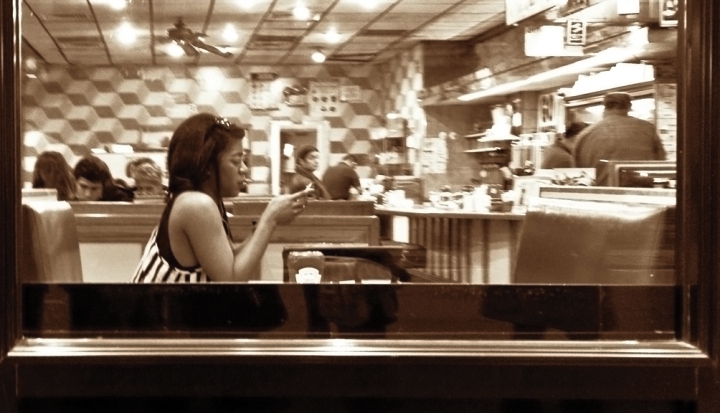Grandma always said, “There isn’t a pot so crooked that you can’t find a lid to fit!” I don’t ever recall my grandmother actually saying this, but when my dad recently repeated this old adage, I laughed so hard I nearly fell off my chair. I was certain that I had heard every well-meaning, backhanded compliment about single people, but this one was new.
Thankfully his comment was not directed at me, or any other singles for that matter. Earlier that day, my dad and I had run into a particularly quirky couple, which later evoked a conversation about what it takes to remain faithful despite our imperfections. Married for more than 40 years, my parents certainly know a thing or two about sticking together, which prompted my grandma’s now famous saying about cookware and their complementary covers.
I had laughed out loud at this silly aphorism because it embodies so many of the myths and stereotypes about single people: the culturally embedded expectation that everyone is destined to be married, the subsequent myth that life is not complete until you say “I do,” and the painful suggestion that there must be something wrong if you’re not in a committed relationship.
Living an intentional single life isn’t something that I decided on as much as something that I found myself living into. I dated off and on throughout my young adult years. But when I finally gave myself permission to stop searching for a significant other and began living with a greater sense of purpose, I discovered some of my most meaningful relationships and found myself more readily available to respond to God. While I live by myself, I am rarely alone, and I have an incredibly fulfilling life.
Still, myths about the single life abound, even within our own church communities. Marriage is sometimes so exalted that singles feel an undue pressure to find “the one”—which can shortcut the necessary discernment worthy of any vocation. Others feel excluded from parish life because they don’t have kids in the Catholic school. I’ve lost track of how many people have dropped a not-so-subtle suggestion that I consider religious life. Not to mention a litany of scripture verses that seem to validate marriage as the better choice.
What does the Catholic Church—which rightfully puts a strong emphasis on marriage and children—have to offer those who choose to be single or those who go through life without finding a partner? When we move beyond the myths, we discover that the church actually has a lot to share.
The greatest gift the church offers to single people is a place to belong. God calls us and takes us as we are, and singles need to be reminded that our presence among the body of Christ is sufficient on its own. For single people in particular, there is great comfort in knowing that God beholds the entirety of our lives. We each bring a unique set of gifts, passions, personal history, and a myriad of relationships. There is so much more to a single person than their state in life. Our belonging to God, our holiness, is certainly not dependent upon our marital status.
Building on the universal call to holiness, the church’s understanding of vocation provides a wide vision for singles. Whether we are single or married, male or female, old or young, gay or straight, our fundamental call as Christians is the call to love.
Many people are single by circumstance, while others are genuinely searching and waiting for a life partner. However, the choice to be single is not simply the “default” when other options fail to materialize. Everyone has a vocation, and our vocations cannot be reduced to a checkbox for marriage, single life, or religious life. Discovering one’s vocation is more than deciding whether to get married, join the seminary, or enter a religious community. Finding one’s vocation in life answers the question, “How is God using my life to share love with others?” It would benefit single people tremendously to talk about the great diversity of vocations within the church, and to give them equal treatment in our prayer and preaching.
I once heard a woman lament about her parish, “There’s nothing here for singles!” The director of the faith formation committee quickly jumped into the conversation and reminded her that bible study groups, the parish mission, prayer opportunities, service events, etc. were open to everyone. I wonder what was missing in her life, and if there was some unmet need that she was hoping the church would fulfill. Perhaps she was going about the question in the wrong way. Instead of asking, “What is my church doing for single people?” we might ask, “What are single people doing for the church?”
Without the demands of family life, many single people are blessed with the time, flexibility, and often a genuine desire to connect with people that affords them the chance to be of service in meaningful ways. This includes both service within our parishes, as well as service to the poor and marginalized in the wider community.
But one of the greatest fears and challenges for singles is loneliness. While not exclusive to singles, its effects are perhaps more acute without a permanent partner. Young and old alike desire the companionship of good friends, and parish life can offer immediate resources with everything from a weekly bible study to a softball league. As a single woman without family in the area, I frequently receive multiple invitations for Thanksgiving dinner and Easter brunch. In a similar way, I regularly see single individuals—from young adults to widows—checking in and caring for one another.
A life of prayer can go a long way toward overcoming loneliness and leading us to a greater appreciation of solitude, which is the ability to be at peace with our aloneness. And we all need a steady dose of scripture to inspire, challenge, and draw us into greater relationship with God. At the same time, there are a handful of scripture verses that I am tempted to skip over. Husbands and wives need good advice, as do singles and those called to ministry within the church, but sacred scripture was never intended to be a proof text for pitting one vocation over another.
How do singles respond to verses like, “It is not good that the man should be alone” (Gen. 2:18) or “Two are better than one, because they have a good reward for their toil” (Eccles. 4:9)? Am I courageous enough to pray with these passages and not simply turn the page?
Instead of dismissing their relevance to my life, I try to read them in the context of community. Is there something that God wants to say to me about the value of friendship, my role as a godparent, my relationship with my family, or my commitment to serving the poor? Just as the paralytic needed his friends to carry him to Jesus, none of us walks the journey of faith alone.
For single people in particular, I often point to Ephesians 4 as a summary of what it means to live according to God’s grace and not simply in response to societal norms. It begins, “I beg you to lead a life worthy of the calling to which you have been called.”
Let’s face it, not every parish does this perfectly. People will make assumptions, and priests will inadvertently promote stereotypes in their preaching. Despite my attempts to explain God’s call to the single life, there is a lady at church who still insists on praying for my future husband. We can all be mindful of unintended exclusive language that suggests an event is designed for couples or families when it is in fact open to the entire community.
Several summers ago, some friends asked me to draft the prayers of the faithful for their wedding. They specifically asked if I could craft a prayer that honored the many examples of love and commitment that surrounded them on their wedding day, including their parents, a sister who is a lesbian, a brother who will likely never marry, a nephew in the seminary, and a large circle of married, single, and divorced friends in attendance. These simple words, inclusive in nature, did not go unnoticed. My friend’s sister in particular mentioned how grateful she was that her love as a single person was acknowledged and validated aloud at Mass.
This continues to be my prayer, “For the many friends who gather here today—those called to single life, marriage, and lives of vowed commitment—may the witness of our lives forever be a reflection of God’s love.”
This article appeared in the August 2014 issue of U.S. Catholic (Vol. 79, No. 8, pages 35-36).
Image: Flickr photo cc by Jim Pennucci














Add comment